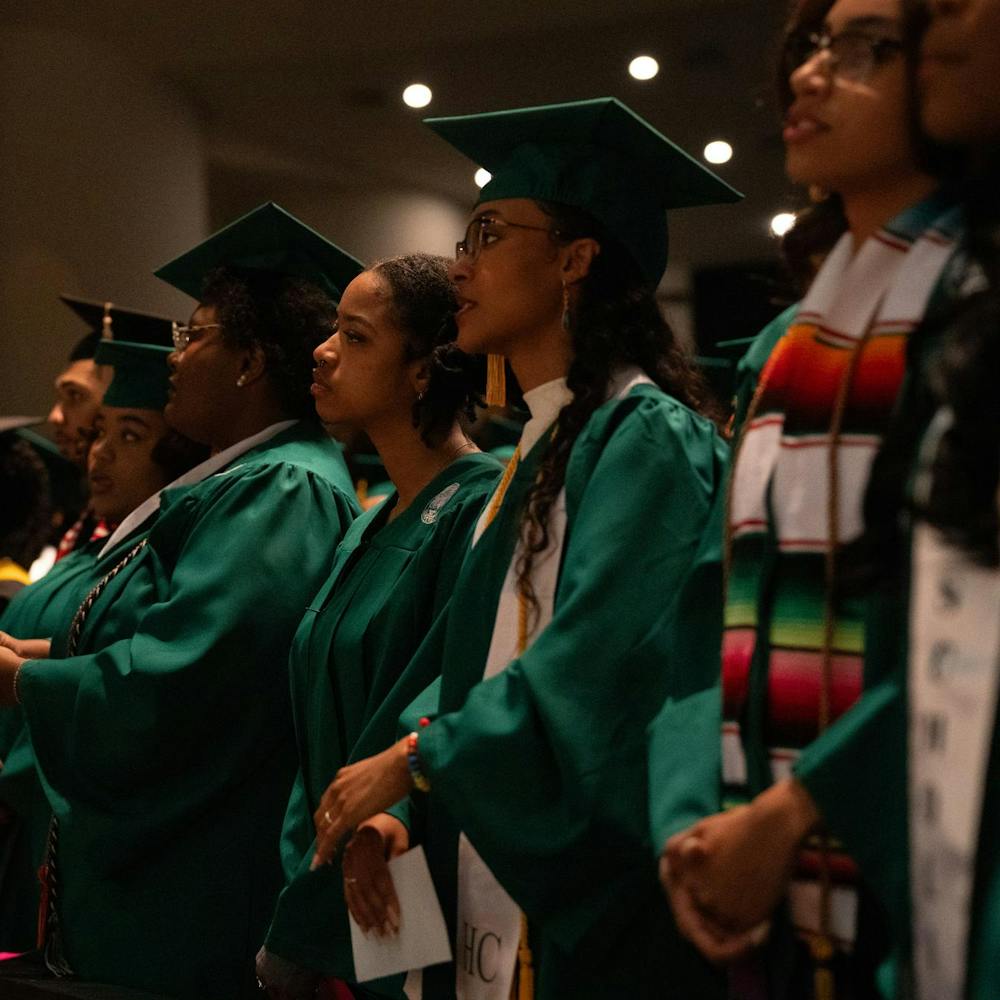A recent report shows MSU’s gap in graduation rates between Caucasian and black students is in the double digits.
According to statistics published by The Education Trust, a group focusing on academic equality among races, and data from MSU’s Office of Planning and Budgets, between 2006-2008, black students had an average six-year graduation rate of about 56 percent, while Caucasian students had about a 78 percent rate — a gap of about 22 percent.
There was an overall graduation rate of 74.3 percent among all students during the same time frame.
In order to understand why the gap is present, Sarah Reckhow, assistant professor of political science who studies racial politics and education policies, said the first place to look is the preparation students receive in high school.
From personal experience, physiology junior Brian Harvey said after attending high school in Detroit, he found he did not have the same study habits as many of his Caucasian classmates.
“A lot of us don’t come from areas that have up-to-par educational systems of higher financial status, and it does have an effect,” he said. “But it’s not an excuse or (a reason) for anyone to feel sorry for African Americans, because at the end of the day … that shapes us and drives us to do better.”
As the president of The Advantage, a group that works to give students keys to being successful in college, Harvey said he feels more black students could remedy feeling unprepared for college by working to seek academic resources on campus.
Rubén Martinez, director of MSU’s Julian Samora Research Institute, 1407 S. Harrison Road, who specializes in social stratification, race and ethnic relations, said creating a positive academic environment for black students is essential for academic success.
“One can look at the kind of bias incidents or hate incidents that have taken place on campus and how they make people feel like they don’t belong there,” he said. “Studies have shown the more people experience those incidents as victims, the less likely they are to do well in school.”
Paulette Granberry Russell, director of the Office for Inclusion and Intercultural Initiatives, was unable to be reached for comment Wednesday.
As a former Office of Cultural and Academic Transitions aide, Harvey said mentorship is a key aspect of inspiring motivation between generations of graduating students.
“If we reach back … to the students coming after us, I think that would really close the gap a little bit,” he said.
Martinez said changing the gap in graduation rates is a matter of addressing the challenges in graduation rate disparities the university is facing.
“The issue is how can MSU transform its educational experience to meet the needs of a diverse student body,” he said. “That really is the question on the table.”
Support student media!
Please consider donating to The State News and help fund the future of journalism.
Discussion
Share and discuss “MSU sees graduation rate gap between races” on social media.






